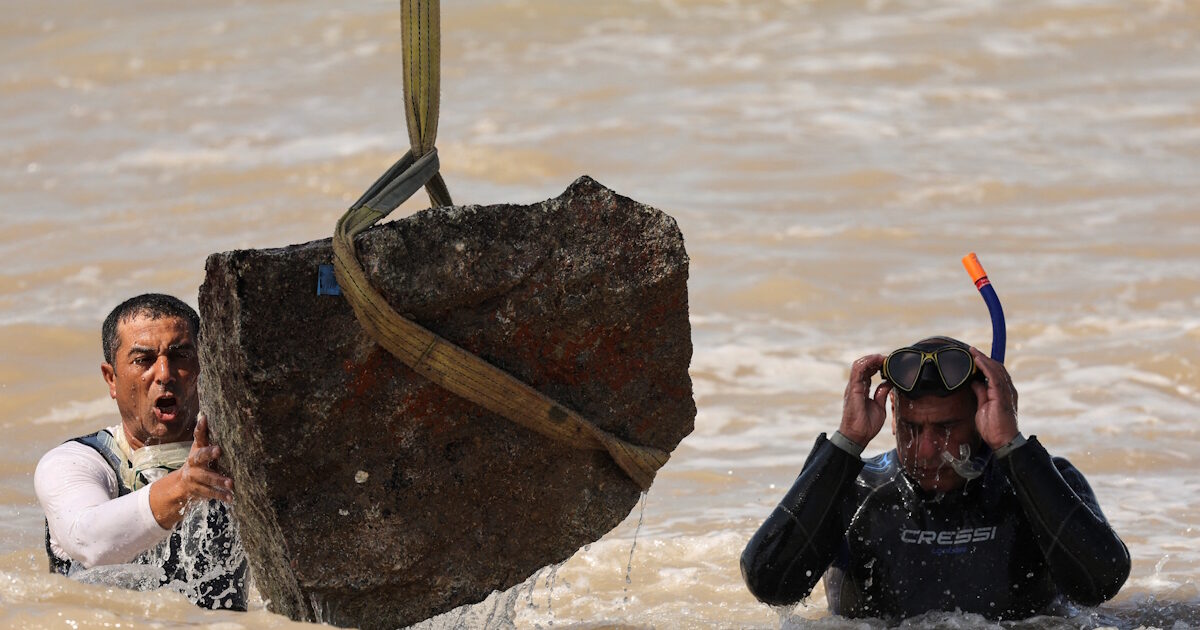Parts of the sunken city located beneath the waters of its coast Alexandria revealed to Egyptwith buildings, objects and an ancient harbor over 2,000 years from the Ptolemaic era.
Authorities in Egypt have said that the site in the Gulf of Abukir in Alexandria may be an extension of ancient Kanopos, which was an important center during the Ptolemaic dynasty, which ruled Egypt for nearly 300 years and the Roman Empire, which has succeeded it for about 600 years. Over the years, earthquakes and rising sea levels have sank the city and Heraklion.
Yesterday (20.08.2025), cranes pulled statues from the sea, while divers in uniforms that had helped to retrieve them, cheered off the coast, the British “Guardian” wrote.
Egypt retrieves submerged artifacts at the shore of the coastal city of Alexandria pic.twitter.com/vcXJc9My5F
— Reuters (@Reuters) August 21, 2025
Egypt’s Minister of Tourism and Antiquities, Serif Fati, said:
“There are many underwater findings, but what we can retrieve are limited, only specific objects that meet strict criteria. The rest will remain part of our submerged heritage. “
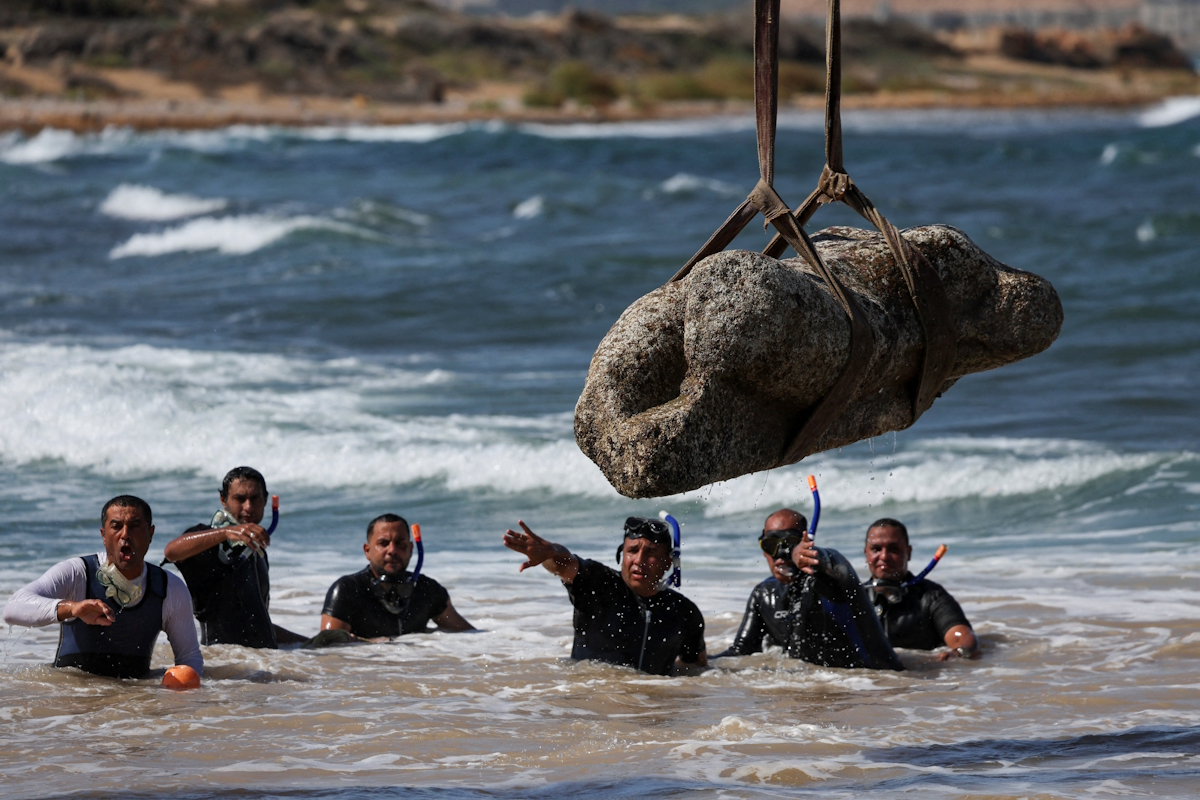

Underwater ruins include limestone buildings that may have been used as places of worship, houses and commercial or industrial constructions. They were also discovered carved on rocks to store household water and fish farming.
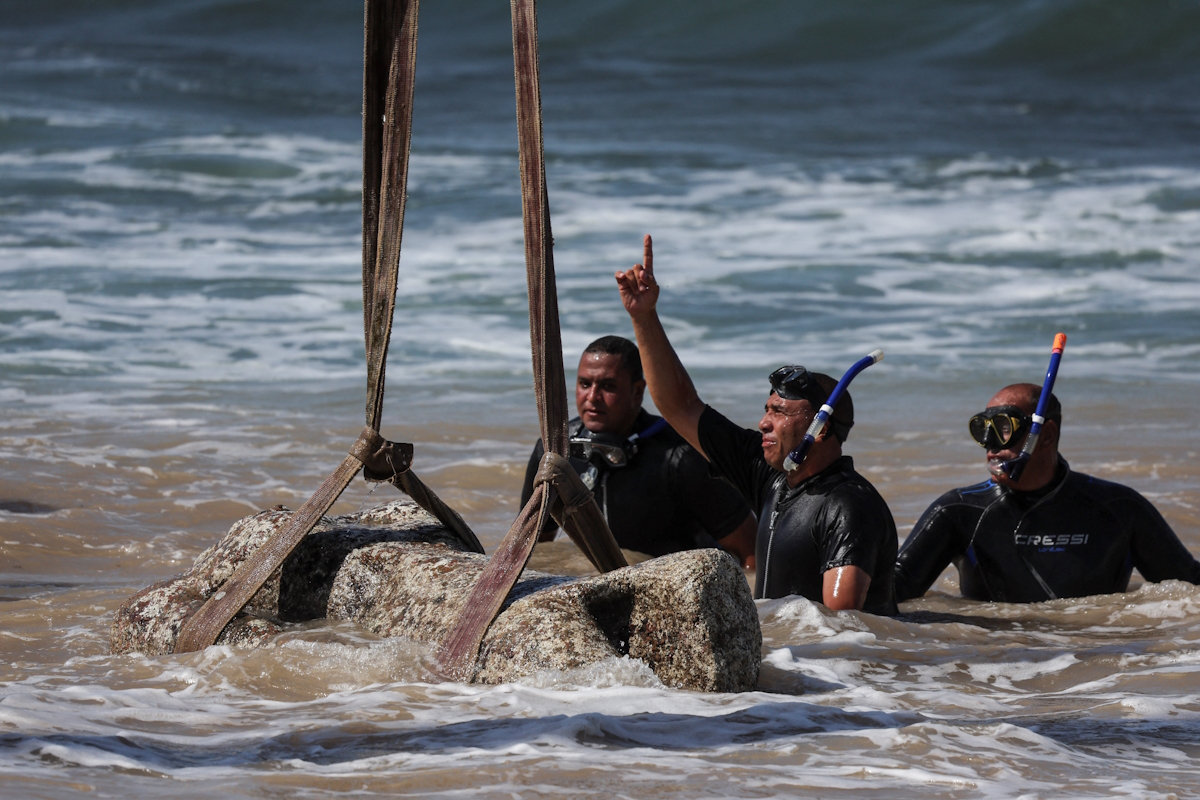

Other remarkable findings include statues of royal faces and sphinxes from the Promaic era, including a partially preserved sphinx with Ramsi B ‘cards.
Many of the statues have lost parts of their bodies, such as a beheaded statue of granite that is thought to represent a personality of the Ptolemaic dynasty and the lower half of a marble statue depicting a Roman nobleman.
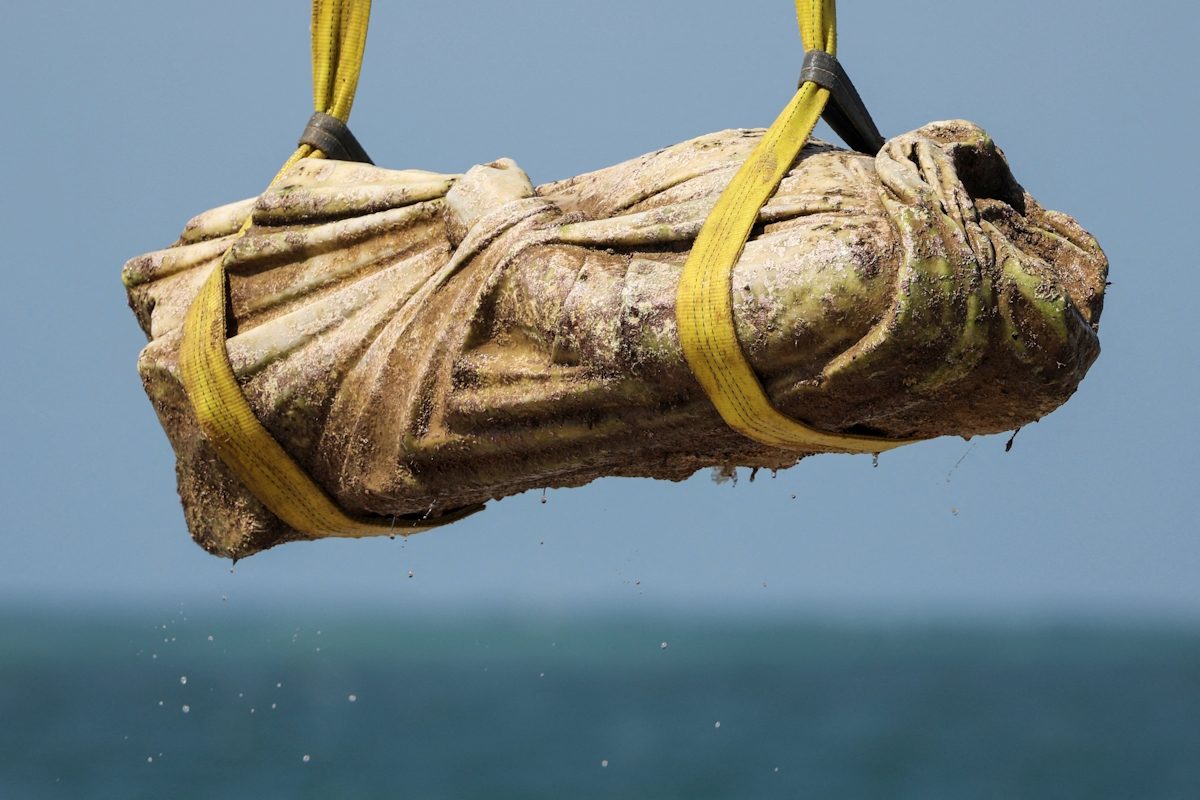

A merchant ship, stone anchors and a crane dating from the Ptolemaic and Roman periods were found at a 125 -meter -long port, which, according to the ministry, was used as a port for small boats until the Byzantine period.
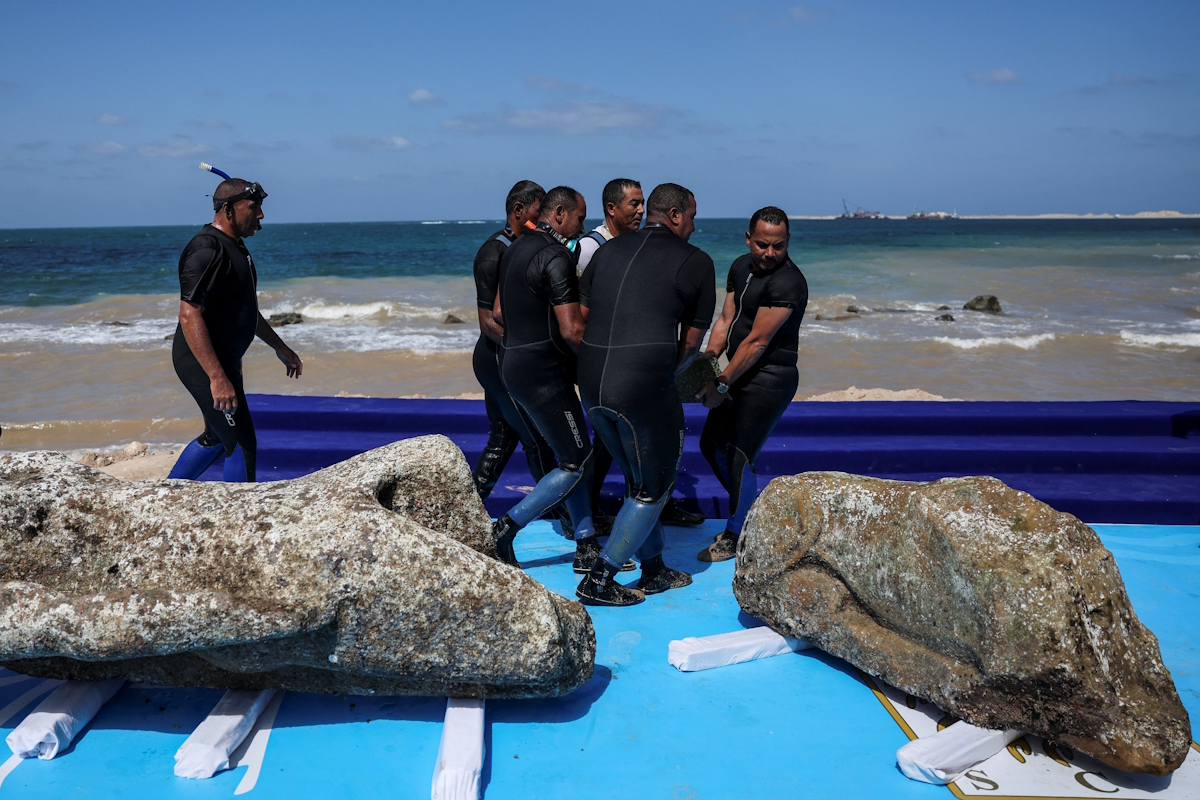

Alexandria hosts countless ancient ruins and historical treasures, but is in danger of the same waters that destroyed the Meto and Heraclion.
The city founded by Alexander the Great is particularly vulnerable to the climate crisis and the rise of sea level.
